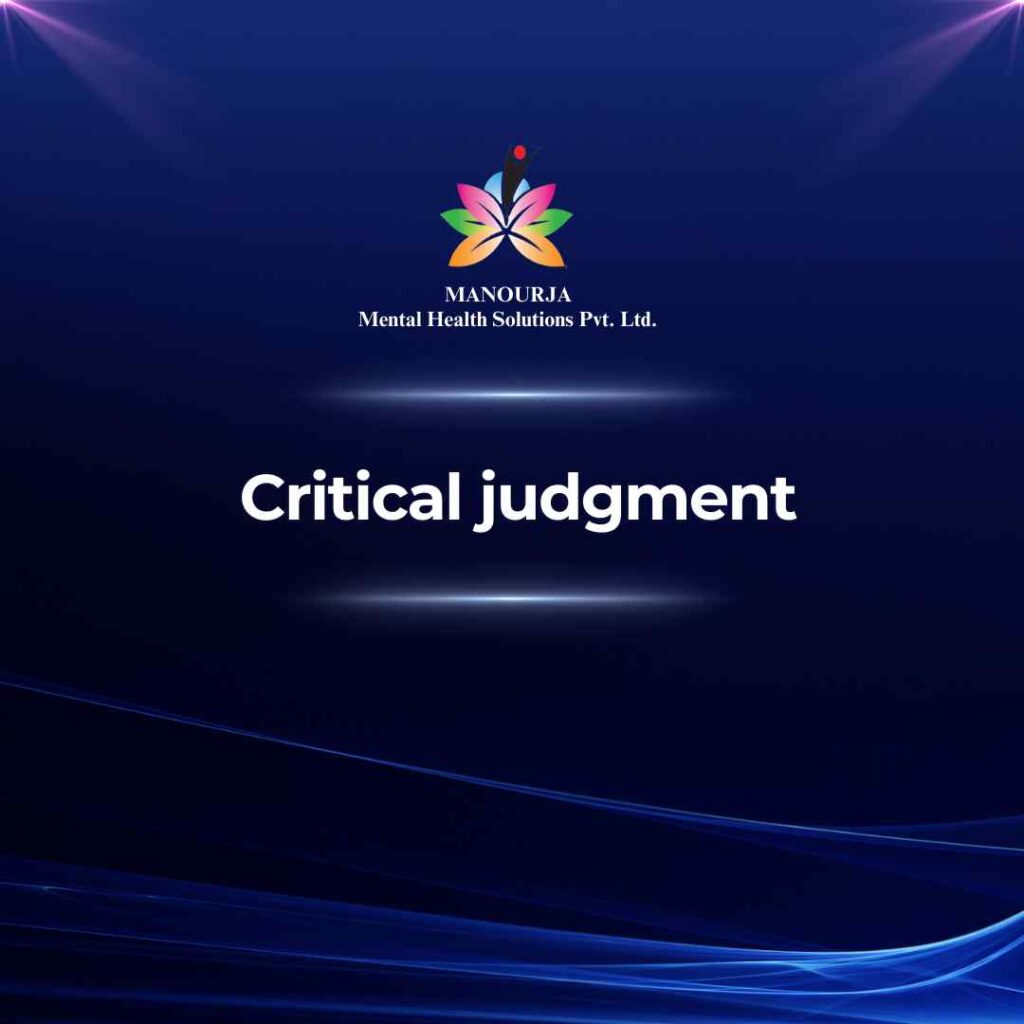Critical Judgment

Critical judgment refers to the ability to evaluate, analyze, and assess information or situations objectively and rationally. It involves the capacity to make reasoned decisions, discern between relevant and irrelevant factors, and consider different perspectives or viewpoints. Critical judgment is an essential cognitive skill that helps individuals navigate complex situations, solve problems, and make informed choices.
Critical Judgment as a Symptom of Mental Illness
While critical judgment itself is not typically considered a symptom of mental illness, certain psychiatric disorders or cognitive impairments can affect an individual’s ability to exercise critical judgment effectively. Changes in cognitive function, perceptual distortions, and disturbances in reasoning or decision-making processes may compromise an individual’s capacity for sound judgment and discernment.
Mental Health Conditions Associated with Impaired Critical Judgment
Psychotic Disorders
- Individuals experiencing psychosis, such as those with schizophrenia, may have impaired critical judgment due to perceptual disturbances, delusional beliefs, and disruptions in thought processes. These symptoms can lead to irrational or illogical reasoning and difficulty distinguishing between reality and delusion.
- During manic episodes in bipolar disorder, individuals may exhibit impulsivity, grandiosity, and poor judgment, leading to risky or reckless behavior. Hypomanic or manic states can impair critical judgment and decision-making abilities, potentially resulting in adverse consequences.
- Severe depression can affect cognitive function and lead to negative biases, cognitive distortions, and impaired concentration, which may compromise critical judgment. Individuals with depression may struggle to evaluate situations objectively and may have difficulty finding solutions to problems.
Neurocognitive Disorders
- Conditions such as dementia or Alzheimer’s disease can impair cognitive abilities, including critical judgment, reasoning, and decision-making skills. As these disorders progress, individuals may experience increasing difficulty with problem-solving and making sound judgments.
- Chronic substance abuse or dependence can impair critical judgment due to the effects of drugs or alcohol on cognitive function. Intoxication or withdrawal may lead to impaired decision-making, impulsivity, and risk-taking behavior.
Impaired critical judgment can significantly impact daily functioning, interpersonal relationships, and overall well-being. Treatment approaches may involve addressing underlying mental health conditions, cognitive rehabilitation, psychoeducation, and supportive interventions aimed at improving decision-making skills and promoting adaptive coping strategies. Collaboration between mental health professionals, caregivers, and support networks may be necessary to address the complex needs of individuals with impaired critical judgment.
At MANOURJA, we believe in the transformative power of counseling. Our experienced therapists offer a safe and supportive space where you can explore your thoughts, emotions, and challenges. Through personalized counselling sessions, we’ll work together to develop coping strategies, build resilience, and achieve lasting positive change. Discover the path to a healthier, happier you with MANOURJA counselling services.
MANOURJA Rehabilitation Services
At MANOURJA, we’re dedicated to helping you in rebuild your life, after difficult times. Our rehabilitation services focus on understanding what you need to move forward, whether you’re recovering from addiction, trauma, or any psychological – social challenges. We create personalized plans, that are all about helping you, regain your strength and find hope again. With a caring team by your side, you’ll have the support to make real progress and take steps toward a brighter, healthier future.
